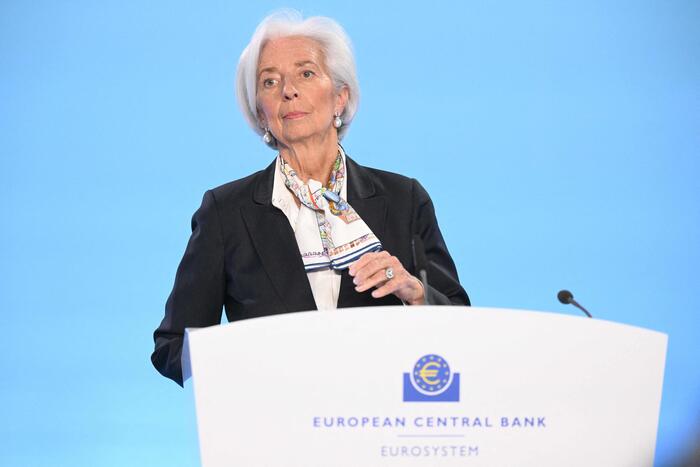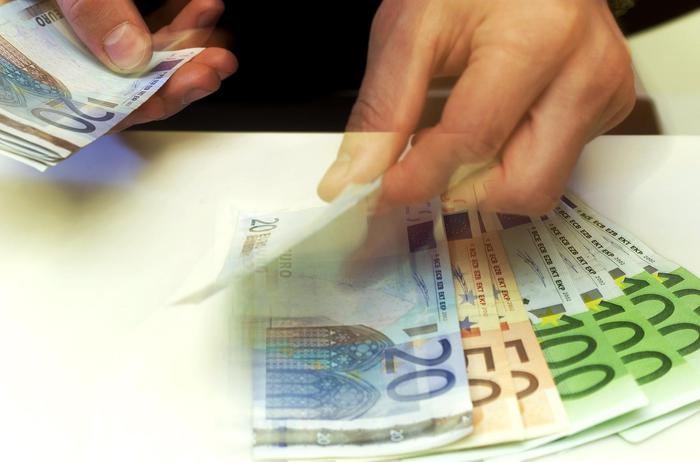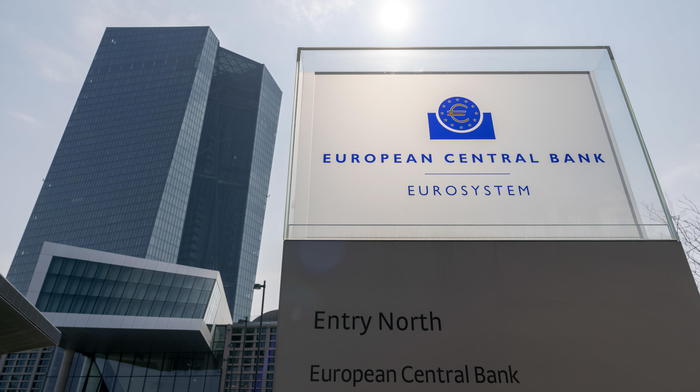The European Central Bank (ECB) remains at the foot of the cannon to alleviate the economic damage of the pandemic, judging by the minutes published this Thursday of the last meeting of the issuer's Governing Council, held in Frankfurt on July 15 and 16 . The body chaired by Christine Lagarde noted a slight economic improvement in the euro zone after the end of the lockdown, but most central bank governors agreed that the situation is still very fragile and uncertainty about the evolution of the next few days prevails. months.
The document echoes a timid attempt by some governors to cling to the less negative indicators to limit the emergency debt purchase program launched by the ECB as a result of the pandemic (the so-called PEPP) and try, in the As far as possible, do not exhaust the 1.35 billion euros planned. But the majority opinion of the monetary sanhedrin was that "unless there is some positive surprise in the medium term regarding the inflation outlook, the current premise is that the PEPP item should be used in full."
The analysis presented at the meeting by the ECB's chief economist, Philip Lane, predicts a worsening of the unemployment rate, which will rise in the autumn and will not reach a ceiling until 2021, later than expected so far. Financing conditions, which according to the ECB have already tightened for households, will also be complicated for companies in the coming months, given the risk of an increase in non-performing loans. And during the meeting, the risk of a dangerous loop between the crisis in the real economy and the potential of the banking sector was invoked, which could lead to a fearsome financial crisis.
"The situation continues to be fragile and the risks are still on the downside", state the minutes of the meeting. Lane warned that "although economic activity was gaining steam, there was no reason for complacency." And the chief economist recalled that "the scope of economic paralysis was extremely high, uncertainty remains high and market sentiment was exceptionally fragile."
The ECB agreed at the meeting to keep interest rates intact and make it clear to the market that they will remain there until it is reliably foreseen that inflation will approach 2%. Their latest data indicate that this level of inflation will take a long time to arrive (especially after the VAT reduction in Germany). Medium-term expectations place inflation at 1.3% in 2022. And in the longer term, it would not exceed 1.6% until 2025.
The agency also agreed to make it clear that the PEPP debt purchase programs will remain in effect as long as it takes to overcome the pandemic crisis and, at least, until June 2021. In addition, the ECB reaffirmed its agreement in June 2021. reinvest the payments that occur in that program at least until the end of 2022.
The ECB's economic analysis detects at least three factors that may put the recovery in question and that could force it to maintain or expand its battery of anti-crisis measures. In the first place, the resurgence of covid-19 in some large economies, which could have "an impact on foreign demand for exports from the euro zone." Second, a possible relapse in domestic consumption and an increase in preventive savings by households given the expected rise in unemployment. And finally, a slowdown in business investment in view of the uncertainty about the evolution of the pandemic and the economic situation.
The hawks of the group (often identified with the central bank governors of Germany, the Netherlands and Austria) stressed that the deterioration of the situation in the euro zone in the second quarter was less dramatic than feared. But other members of the Council warned about the risk of interpreting a “technical rebound” after a long period of confinement as a strong and sustainable recovery signal.
Instead, the Governing Council called for “an ambitious and coordinated fiscal response”, a position that Lagarde made clear during the press conference after the meeting and that contributed to the agreement on the 750,000 million euro recovery fund achieved in the European summit a few days later.
The governors of the ECB already gave "a great welcome" to the Commission's proposal, which aimed to distribute the fund between half a trillion euros for subsidies and a quarter of a billion euros for loans. The pact of the 27 countries of the EU left the distribution at 390,000 million for subsidies and 360,000 million for credits, but the formula was considered very satisfactory by Lagarde.
Even before the agreement, Frankfurt stated that “the response of the euro zone, with monetary and fiscal policy complementing each other, has managed to soften financial conditions and restore confidence in the recovery of the euro zone economy”, according to the analysis of the situation presented during the meeting by Isabel Schnabel, member of the executive committee of the ECB.

/cloudfront-eu-central-1.images.arcpublishing.com/prisa/NNTWMRY3PKVQ5BJN4GD426TJRQ.jpg)

/cloudfront-eu-central-1.images.arcpublishing.com/prisa/C3LDLHDAXBBCFCHWBPELHN64FU.jpg)



/cloudfront-eu-central-1.images.arcpublishing.com/prisa/BSW76ADTMZBGXEN5B5THLU2R7M.jpg)
